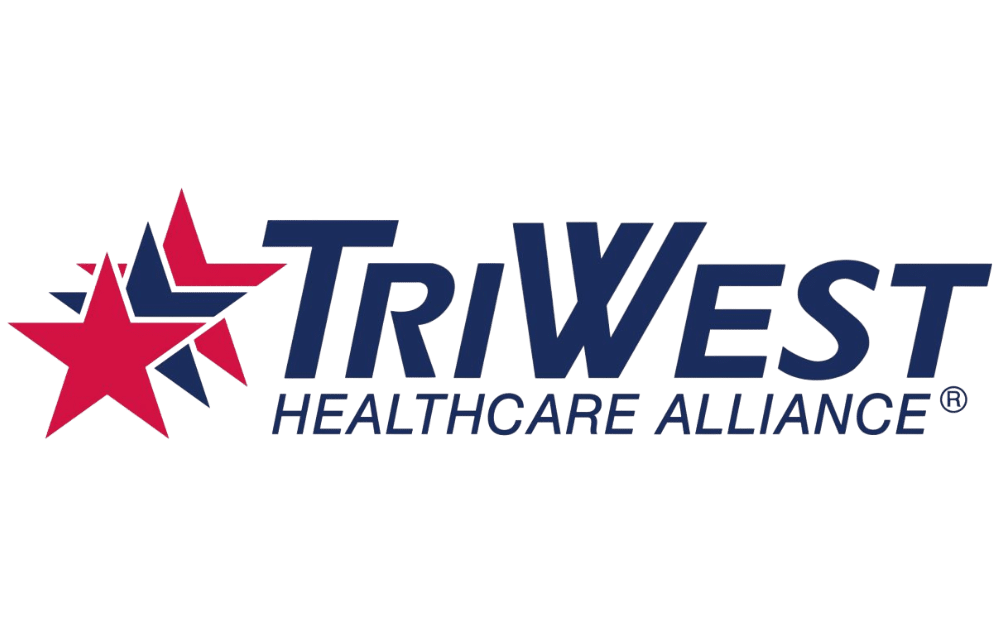Alcohol treatment
The Nature of Addiction
Understanding the complexity of addiction is fundamental when discussing alcohol treatment. Addiction is a chronic, relapsing disorder characterized by compulsive drug seeking, continued use despite harmful consequences, and long-lasting changes in the brain. It’s much more than a mere physical dependence; it involves a variety of psychological and behavioral complexities. At Mile High Recovery Center, we recognize that overcoming addiction requires a comprehensive approach that addresses both the physical and emotional aspects of the illness.
The psychological component of addiction is particularly challenging, as it often involves deep-rooted emotional and mental health issues. At our center, we employ evidence-based therapies designed to unearth and address these underlying issues, aiding in effective alcohol treatment. Common contributing factors to addiction include stress, trauma, and a lack of social support, which we address through an integrative treatment approach.
Our holistic treatment model at Mile High Recovery Center focuses on more than just abstinence from alcohol; it aims to rebuild the individual’s overall wellbeing. Treatment plans are tailored to each client’s specific needs, offering therapies that promote long-term recovery and reintegration into a supportive community.
A Diverse Range of Treatments
One of the key components of effective alcohol treatment is offering a wide array of therapeutic options. At Mile High Recovery Center, our program includes both traditional and experiential therapies. Cognitive Behavioral Therapy (CBT) and Dialectical Behavior Therapy (DBT) are utilized to help patients develop healthier thinking patterns and emotional regulation skills. These evidence-based practices are vital in addressing the cognitive distortions and emotional turmoil that often accompany addiction.
In addition to these traditional therapies, Mile High Recovery Center offers experiential modalities such as adventure therapy and equine-assisted therapy. These unique approaches help clients reconnect with themselves and the world around them. This diversification in treatment is crucial in appealing to different learning styles and personal preferences, which can significantly enhance engagement and the likelihood of sustained recovery.
Moreover, we incorporate medication-assisted treatment (MAT), including Suboxone and Vivitrol, which are integral to managing cravings and withdrawal symptoms effectively. MAT is seen as a bridge that supports the transition from dependent behaviors to a more stable life, and our center offers ongoing monitoring to ensure the medications’ effectiveness as part of a broader alcohol treatment strategy.
The Role of Supportive Housing
The transition from an inpatient facility to everyday life can be daunting, which is why Mile High Recovery Center emphasizes the importance of supportive housing. We have developed a housing-to-treatment pipeline that ensures a seamless transition, reducing the risk of relapse. Our sober living homes provide a safe and structured environment, fostering healthier habits and connections within the recovery community.
Supportive housing plays a critical role in alcohol treatment by offering individuals the space and time to practice new skills and strategies in a controlled setting. This is particularly crucial during the early stages of recovery, where temptation and old habits can easily undermine progress. Our alumni support program further reinforces this by maintaining long-term connections and providing ongoing mentorship.
Incorporating Nutrition and Wellness
At Mile High Recovery Center, we believe that nutrition and physical wellness are essential components of holistic alcohol treatment. Substance abuse often leads to poor dietary habits, which can exacerbate both physical and mental health problems. Our center incorporates nutrition education and wellness activities to help clients restore their health and vitality as part of their recovery journey.
We provide tailored meal plans and cooking classes that teach clients how to prepare healthy meals, fostering independence and responsibility. Regular physical activities, including yoga and fitness classes, support overall mental well-being and physical recovery. This holistic approach empowers clients to take ownership of their health, improving their chances of maintaining sobriety post-treatment.
By integrating these wellness components into our treatment programs, we aim to instill a balanced lifestyle that supports long-lasting recovery. Clients learn to appreciate the benefits of a healthy lifestyle and are equipped with the resources and knowledge to implement these changes long after leaving our care.
Personalized Care and Dual Diagnosis
At Mile High Recovery Center, we understand that effective alcohol treatment must be personalized to the individual. Each person’s experience with addiction is unique, influenced by a myriad of factors including genetics, personal history, and co-occurring mental health disorders. To address this, we tailor treatment plans to meet the specific needs of each client, ensuring that every aspect of their health is considered.
Our comprehensive approach includes dual-diagnosis services for clients experiencing co-occurring mental health disorders such as anxiety, PTSD, or bipolar disorder. Our team of trained professionals is equipped to provide specialized treatment that addresses both substance use and mental health challenges simultaneously. This integrated treatment model is vital for improving outcomes, as untreated mental health issues can undermine recovery efforts.
Community and Connection
Recovery from addiction is not a journey that should be taken alone. At Mile High Recovery Center, we place a strong emphasis on community connection and support. Building relationships with others who understand the challenges of addiction and recovery is invaluable for maintaining sobriety. Our active alumni community provides a network of support that extends beyond treatment, offering guidance, camaraderie, and accountability.
We organize regular alumni events and activities that foster a sense of belonging and continuity. These connections help clients feel less isolated, providing the encouragement and support necessary to navigate the ups and downs of their recovery. This community-based approach is a cornerstone of our treatment philosophy, helping clients to build a resilient and supportive recovery environment.
Involving family members in the recovery process is also crucial. We offer family therapy sessions to help repair relationships and build a supportive home environment. By providing education and guidance, family members become an integral part of the recovery team, working alongside our professionals to support the client’s journey.
Barriers to Therapy
Despite the benefits of alcohol treatment, individuals often encounter several barriers that can impede access to the care they need. At Mile High Recovery Center, we are committed to identifying and addressing these obstacles to facilitate treatment accessibility. Financial limitations, stigma, and geographical constraints are among the most common challenges faced by those seeking help.
We work closely with individuals and families to navigate these barriers, offering assistance with insurance verification and in-network reimbursement with major carriers such as Aetna, Cigna, and Blue Cross Blue Shield. Additionally, our Denver City Center location provides convenient access for those in the metro area, and we coordinate referrals with local health care providers to ensure continuity of care.
By actively removing these barriers, we aim to make alcohol treatment attainable for all who need it, ensuring that financial or logistical challenges do not stand in the way of recovery.
Embracing Diversity in Treatment
Mile High Recovery Center is committed to creating an inclusive environment that respects and embraces diversity. We recognize that each individual’s experience with addiction is influenced by cultural, social, and personal contexts that require sensitivity and understanding. Our staff includes clinicians with lived recovery experience, providing relatable and empathetic care tailored to diverse backgrounds.
We offer specialized services to meet the unique needs of various groups, including LGBTQ individuals and military beneficiaries through Tricare. Our diverse team and comprehensive approach ensure that every client receives culturally competent care that respects their individual experiences and identities. This focus on diversity provides a safe and supportive space for healing, facilitating a more effective alcohol treatment process.
The Future of Recovery
As the understanding of addiction evolves, so too do the methods and strategies used in alcohol treatment. Mile High Recovery Center remains at the forefront of these advancements, constantly integrating new therapies and technologies that enhance the recovery experience. Our facility is accredited and recognized for its commitment to innovation, maintaining relationships with local healthcare providers to stay informed on the latest treatment developments.
Looking forward, we anticipate a continued emphasis on personalized, integrative care that leverages both technological advancements and compassionate, human-centered approaches. By remaining adaptable and forward-thinking, we strive to provide the most effective treatment options that empower individuals to achieve lasting sobriety and a fulfilling life.
What is the nature of addiction, and why is it essential to understand it for effective alcohol treatment?
Understanding addiction as a chronic, relapsing disorder is crucial for effective alcohol treatment. Addiction is not merely about physical dependence; it’s a complex interplay of psychological, behavioral, and neurochemical factors. For instance, an individual could initially see their drinking as a social habit, but over time, it becomes a compulsive behavior that disrupts their daily life. Studies show that addiction involves long-lasting changes in the brain that influence behavior, which is why it’s not simply a matter of willpower to stop. Our approach at Mile High Recovery Center digs deeper than just abstinence by addressing underlying issues such as stress, trauma, or a lack of social support. This comprehensive approach helps rebuild an individual’s overall wellbeing, promoting lasting recovery. Have you ever wondered what specific psychological factors might be influencing someone’s struggle with alcohol use?
How does Mile High Recovery Center offer a diverse range of alcohol treatment options?
At Mile High Recovery Center, we believe that offering a wide array of therapeutic options is key to successful alcohol treatment. Traditional therapies like Cognitive Behavioral Therapy (CBT) and Dialectical Behavior Therapy (DBT) help individuals reframe negative thinking and regulate emotions effectively. But we don’t stop there; we also incorporate experiential treatments like equine-assisted therapy and adventure therapy, which can provide powerful insights and healing in non-traditional settings. Imagine a client engaging in adventure therapy and discovering a newfound sense of achievement and self-worth, which bolsters their recovery journey. This diversified approach ensures we meet clients’ varying needs and preferences, enhancing engagement and success rates. What kinds of therapies do you think would resonate most with someone you know?
What role does supportive housing play in alcohol treatment and recovery?
Supportive housing is a cornerstone of a successful transition from treatment back into everyday life. At Mile High Recovery Center, we understand that the environment plays a critical role in maintaining sobriety. Our sober living homes provide a structured and safe setting where individuals can practice newly learned skills and build healthier habits. An alumni who recently transitioned to our supportive housing shared how the communal environment helped them avoid old triggers and make new, supportive friendships. This environment significantly reduces the risk of relapse during those critical early stages of recovery. How do you think a supportive community might influence someone’s recovery journey?
Why are nutrition and wellness crucial components of alcohol treatment?
The connection between nutrition, wellness, and recovery is profound. Alcohol abuse often leads to poor dietary habits, which can worsen both physical and mental health conditions. At Mile High Recovery Center, we incorporate nutrition education and wellness activities into our treatment programs. For example, we offer cooking classes and tailored meal plans that educate clients on preparing nutritious meals. One client mentioned how learning to cook was empowering, giving them control and responsibility over their health. Physical activities, such as yoga, further complement this by providing emotional balance and stress relief. By promoting a healthy lifestyle, we empower individuals to maintain sobriety even after they leave our care. How do you think a focus on wellness could impact your life or the life of someone you care about?
How does personalized care and addressing dual diagnosis enhance alcohol treatment?
Personalized care is at the heart of effective alcohol treatment. Every individual experiences addiction differently, influenced by genetics, personal history, and co-occurring mental health disorders. At Mile High Recovery Center, we emphasize the importance of tailoring treatment plans to suit these unique needs. For instance, a client with anxiety and alcohol dependence would receive integrated treatment that addresses both conditions, as untreated mental health issues can sabotage recovery. This dual-diagnosis approach is critical for improving outcomes. Our specialized care ensures that each element of the individual’s health is considered, leading to more comprehensive healing. Have you considered the unique factors that might influence someone’s experience with addiction?
How do community and connection facilitate successful alcohol treatment?
Community and connection are vital components of the recovery process. At Mile High Recovery Center, we emphasize the importance of building relationships with others who understand the journey of addiction and recovery. Our active alumni community fosters a sense of belonging and provides continuous support and accountability. One alumnus recently shared how staying connected with peers helped them through difficult times, reminding them they are not alone. Involving family members in therapy also strengthens this support system, healing relationships and creating a nurturing home environment. Building these connections reduces isolation and promotes sustained recovery. Have you ever experienced the power of community support in overcoming challenges?
What are common barriers to accessing alcohol treatment, and how does Mile High Recovery Center address them?
Barriers like financial limitations, stigma, and geographical constraints often hinder access to effective alcohol treatment. At Mile High Recovery Center, we actively work to remove these obstacles. We assist with insurance verification and reimbursement processes to ease financial burdens. A client recently told us how navigating insurance was a significant hurdle before finding our help invaluable. Our centralized Denver location offers convenient access, and we coordinate with local healthcare providers to ensure smooth care transitions. By breaking down these barriers, we make treatment more accessible for everyone in need. What other challenges do you think might prevent someone from seeking treatment?
Why is embracing diversity important in alcohol treatment?
At Mile High Recovery Center, we recognize that each individual’s experience with addiction is shaped by cultural, social, and personal contexts. Embracing diversity in treatment means providing relatable and empathetic care that resonates with these unique experiences. Our team includes individuals from diverse backgrounds and those with lived recovery experience, which enhances empathy and understanding. Through specialized services for groups like the LGBTQ community, we ensure culturally competent care. A client shared how having a therapist who understood their cultural background made them feel seen and heard, which strengthened their commitment to recovery. How do you think cultural understanding impacts the effectiveness of treatment?
What does the future of recovery look like at Mile High Recovery Center?
The future of recovery involves continual adaptation and integration of new therapies and technologies. At Mile High Recovery Center, we’re committed to staying at the forefront of advancements in treatment methods to enhance the recovery experience. For example, leveraging technology for telehealth sessions expands access and flexible care options. Our commitment to innovation ensures that personalized and integrative care remains a priority, empowering individuals to achieve lasting sobriety. By maintaining adaptability and forward-thinking approaches, we provide the most effective treatment options. What innovations in treatment do you think will make the most significant impact on future recovery journeys?
Resources
- Substance Abuse and Mental Health Services Administration (SAMHSA) – SAMHSA is the leading agency in the U.S. working to reduce the impact of substance abuse and mental illness on America’s communities.
- National Alliance on Mental Illness (NAMI) – NAMI is the nations largest grassroots mental health organization dedicated to building better lives for the millions of Americans affected by mental illness.
- National Institutes of Health (NIH) – The NIH is the nation’s medical research agency, supporting scientific studies that turn discovery into health.
- Centers for Disease Control and Prevention (CDC) – The CDC is a leading national public health institute of the United States that provides credible information to enhance health decisions.
- National Institute on Drug Abuse (NIDA) – NIDA’s mission is to advance science on the causes and consequences of drug use and addiction and to apply that knowledge to improve individual and public health.
















